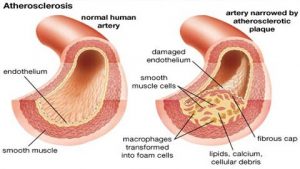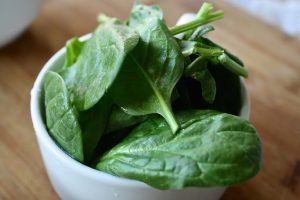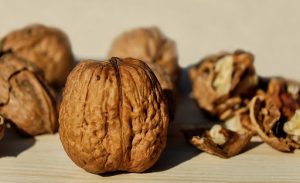According to the Center for Disease Control and Prevention (CDC), one in three Americans has high cholesterol. Diet is often the leading cause behind high levels of cholesterol. On the other hand, a healthy diet reduces it, which begs the question: can a plant-based diet lower high cholesterol?

While our body produces the cholesterol we need, food is usually the main contributor to high levels. This is why it’s all the more important to watch what you eat and avoid things that raise cholesterol levels. High cholesterol can lead to life-threatening diseases, especially cardiovascular diseases.
If you’re someone who has high cholesterol, a plant-based diet can help lower it, ultimately preventing the complications associated with high cholesterol.
What is Cholesterol?
Cholesterol is a type of lipid (fat) found in the blood. It’s a waxy substance that the liver produces naturally. The main functions of cholesterol include the formation of the cell membrane, vitamin D, and some hormones.
Cholesterol is not water-soluble, so it doesn’t get absorbed by the blood. Your body transports it via lipoproteins, which is a mix of fat and proteins.
When the cholesterol in your body gets higher, it can deposit in the blood vessels. Ultimately, it can negatively impact the flow of blood in the vessels and may even form clots that, in turn, cause a heart attack or stroke.
What Cholesterol is Good and Bad?
When we talk about cholesterol, you’ll often hear the terms of good cholesterol and bad cholesterol. As cholesterol travels in the form of lipoproteins, there are two main types of lipoprotein or cholesterol, for that matter.
Lower density lipoprotein (LDL) and High-density lipoprotein (HDL) are the two kinds of cholesterol. LDL is considered bad cholesterol, as it carries it throughout your body. On the other hand, HDL is good cholesterol, as it carries all the extra cholesterol back to the liver.
When people have high cholesterol, it’s usually higher levels of LDL or bad cholesterol. This is the cholesterol that builds up inside the artery walls and can lead to blockage. LDL also carries triglycerides, which is another type of lipid.
High Cholesterol Risk Factors
There are a variety of risk factors that increase bad cholesterol in your body. Usually, there are no symptoms of high cholesterol. It can only be detected through a blood test.
Poor Diet
A poor diet is usually the main culprit behind high cholesterol. Saturated fats and trans fats can increase the amount of cholesterol in the body. Those who eat a lot of animal products and processed foods are at risk of increasing the level of bad cholesterol in their body.

A paper out of BMJ shows the adverse effects of saturated fats on cholesterol in the body.
Less Physical Activity
Low exercise is a risk factor for high cholesterol because physical activity helps increase HDL or good cholesterol. Also, it lowers the size of the particles of LDL. As a result, being active keeps cholesterol levels in check.
On the other hand, individuals with a sedentary lifestyle with no physical activity are more susceptible to high cholesterol. According to one study, exercise has an even bigger impact on women than men, in terms of increasing HDL.
Obesity
According to Mayo Clinic, a Body Mass Index (BMI) of 30 increases the risk of cholesterol. Obesity itself is usually a result of the above two risk factors. It can be genetic and inherited, but in many people, poor diet and lifestyle is the main cause.
There’s no surprise that obesity can lead to high cholesterol. Come to think of it, obesity and high cholesterol numbers in America are quite comparable.
Diabetes
In diabetic patients, the levels of HDL cholesterol are low, whereas the levels of VLDL (very low-density lipoprotein) are high. Research has shown that bad glycemic control leads to this rather dangerous scenario in both type I and type II diabetes.
Smoking
Smoking can also increase the risk of high cholesterol. The chemicals from tobacco smoke can make the artery walls weak. As a result, your blood vessels become more susceptible to fatty deposits.
Smoking can also reduce the levels of HDL, increasing the bad cholesterol to HDL ratio.
Age
Over time, your liver’s capacity to remove bad cholesterol can reduce. As you get older, your risk of high cholesterol increases. Age, combined with any of the above risk factors, may increase the risk even further.
Normal Cholesterol Levels
It’s important to get your cholesterol tested every few years if you’re over the age of 20. You should also know what cholesterol levels are normal. The range of normal and high cholesterol varies by sex and age.
Cholesterol Levels for Women
| Total Cholesterol | 125 to 200 mg/dL |
| HDL | 50 mg/dL or higher |
| LDL | Less than 100 mg/dL |
Cholesterol Levels for Men
| Total Cholesterol | 125 to 200 mg/dL |
| HDL | 40 mg/dL or higher |
| LDL | Less than 100 mg/dL |
The above chart is based on the information from MedlinePlus. For those younger than 20 years, the total cholesterol should be lower than 170 mg/dL.
Another thing to note is how much cholesterol per day you can include in your diet. The USDA recommends only consuming 300 mg or less of dietary cholesterol.
Effects of High Cholesterol on the Body
Cholesterol is an important substance for the body. You need it, at its natural levels, for a variety of bodily functions. For instance, your endocrine system uses cholesterol to produce hormones, such as testosterone, estrogen, and cortisol.

Similarly, cholesterol also plays a vital role in your brain. It’s responsible for protecting the nerve cells. In your digestive system, cholesterol helps produce bile, which breaks down the nutrients from the food you eat.
Since cholesterol is so prevalent in your body, higher levels of it can be quite detrimental. The most susceptible is your cardiovascular system.
Higher levels of LDL or bad cholesterol lead to the build-up of fatty deposits in the blood vessels. It leads to a condition called atherosclerosis. Atherosclerosis is the condition where your artery walls get stiffer. As a result, it puts pressure on your heart.
The plaque caused by high cholesterol also impacts the flow of oxygen. As your heat does not get enough oxygen, you may experience chest pain.
The build-up can also breakaway forming a clot, which can block the flow of oxygen and blood to the heart, leading to a heart attack. Similarly, this clot can travel all the way to your brain and cause a stroke.
With heart disease killing nearly 18 million people in the world every year, it’s important to get your cholesterol checked every few years. You may not even know that your cholesterol is high, and it might result in deadly complications.
Can a Plant-based Diet Lower High Cholesterol?
A plant-based diet is inherently a low-fat diet, which means it does not contain any foods that may raise your cholesterol levels. However, it also has the potential to reduce high cholesterol. Since plants are very low in saturated fats, they lower the risk of many complications of high cholesterol.
Fiber is one nutrient that plays a major role in lowering bad cholesterol. It can slow down the absorption of fat and cholesterol in your body. A study from the American Journal of Epidemiology confirmed the positive effects of dietary fiber in lowering total cholesterol and LDL.
Similarly, a review study by the researchers at the Physicians Committee for Responsive Medicine compared the effects of plant-based and carnivore diets on lipids. The plant-based diet clearly showed favorable results with far lower cholesterol levels. The effect was most profound in those consuming a vegan diet.
The best part is that it doesn’t take a long time to see the results of a plant-based diet. A research study out of Stanford University tested cholesterol levels of participants eating plant-based and standard low-fat diets. After only four weeks, the group consuming a plant-based diet showed significantly lower cholesterol levels.
There’s ample scientific evidence that supports this type of diet rich in vegetables, fruits, whole grains, and nuts as the best solution for lowering high cholesterol.
7 Plant-based Foods To Lower High Cholesterol
Can a plant-based diet lower high cholesterol? Absolutely! However, you should know which plant-based foods, in particular, are great for this purpose. Including more of such foods in your daily diet will have a significant and rapid effect on high cholesterol.
1. Spinach
Leafy greens, in general, are great for lowering LDL cholesterol. However, spinach takes the win with a compound called lutein. Lutein is an antioxidant that spinach is loaded with, and it prevents bad cholesterol from blocking the arteries.

Lutein is also good for your eyes, so it provides many benefits to people with normal cholesterol, as well as those with high LDL levels. It’s also found in eggs, but with spinach, you don’t have to worry about all the saturated fats that eggs contain.
2. Avocado
Avocados are rich in fat, but they are rich in good fat. They contain fats that are called beta-sitosterols. What beta-sitosterols do is they reduce LDL levels, while raising HDL levels.
As this video from NutritionFacts.org shows, avocados lower small and dense LDL particles, which are the most harmful. For the intake of well-balanced nutrients, avocados are the best option.
Most people with high cholesterol tend to lean towards a diet with low or absolutely no fat. That’s not the most healthy route, as you do need some fat, which avocados can provide.
3. Beans
Beans are rich in antioxidants and fiber, both of which help lower high levels of bad cholesterol. They improve heart function by lowering cholesterol. Adding more beans to your diet can ensure that high cholesterol does not damage your heart health.
In addition to fiber, beans also contain many other healthy minerals, including potassium, magnesium, and iron.
4. Oats
Oats are extremely rich with fiber content, which makes them ideal whole grains for people with cholesterol problems. Eating oatmeal regularly for breakfast will dramatically reduce LDL levels in your body.
Think of oats as a cleaner for your blood vessels. It will sweep away all the bad cholesterol and toxins from your blood vessels, ultimately improving blood flow and heart function. Oatmeal even has the power to reverse the blockage of arteries and reverse heart disease.
5. Soy
Soy contains isoflavones that are known to reduce bad cholesterol. However, you can only benefit from unprocessed soy foods like tofu or tempeh. Even edamame, which you can eat as a snack, will benefit by lowering cholesterol.
There’s quite a lot of evidence that supports soy as food that prevents and treats cardiovascular diseases. That usually results from the protein components, but other components, like isoflavones, also improve heart health.
6. Walnuts
In addition to fiber, omega-3 fats are also known to increase HDL or good cholesterol. Walnuts are incredibly rich in this nutrient, which will serve as an alternative to seafood in your plant-based diet.

Just eating a few walnuts every day will show you tangible results. You can keep a jar of walnuts on your nightstand and eat four or five of these daily. As an added bonus, they are also good for your cognitive health.
7. Garlic
Garlic is perhaps the most powerful against bad cholesterol. We already know that garlic is good for preventing a host of deadly diseases, including heart disease, stroke, and cancer. However, it’s also pretty good for lowering cholesterol.
To get this benefit of garlic, you should include two to three cloves of garlic in your diet. Garlic powder or paste may not give you the same level of this benefit as whole cloves of garlic.
Wrap Up
Can a plant-based diet lower high cholesterol? Yes, a whole-food plant-based diet can lower high cholesterol and prevent complications. It’s your best bet to get your cholesterol back to normal and keep it that way.
Cholesterol is something that you can easily manage by changing your diet and adding physical activity. Unlike other conditions, most risk factors are preventable. It’s surprising that high cholesterol is still so prevalent in our nation and all over the world.
You may also like: ARE PLANT BASED DIETS HEALTHY? >>CLICK HERE!










